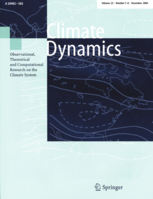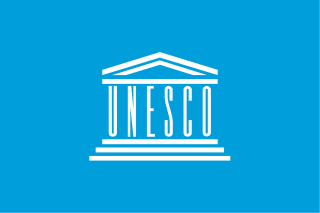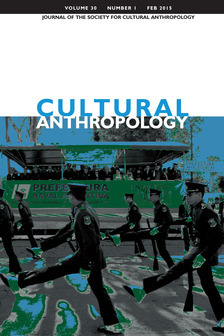Related Research Articles

The conservation and restoration of cultural property focuses on protection and care of cultural property, including artworks, architecture, archaeology, and museum collections. Conservation activities include preventive conservation, examination, documentation, research, treatment, and education. This field is closely allied with conservation science, curators and registrars.

Malacology is the branch of invertebrate zoology that deals with the study of the Mollusca, the second-largest phylum of animals in terms of described species after the arthropods. Mollusks include snails and slugs, clams, and cephalopods, along with numerous other kinds, many of which have shells. Malacology derives from Ancient Greek μαλακός (malakós) 'soft', and -λογία (-logía).

Cultural heritage is the heritage of tangible and intangible heritage assets of a group or society that is inherited from past generations. Not all heritages of past generations are "heritage"; rather, heritage is a product of selection by society.
An intangible cultural heritage (ICH) is a practice, representation, expression, knowledge, or skill considered by UNESCO to be part of a place's cultural heritage. Buildings, historic places, monuments, and artifacts are cultural property. Intangible heritage consists of nonphysical intellectual wealth, such as folklore, customs, beliefs, traditions, knowledge, and language. Intangible cultural heritage is considered by member states of UNESCO in relation to the tangible World Heritage focusing on intangible aspects of culture. In 2001, UNESCO made a survey among States and NGOs to try to agree on a definition, and the Convention for the Safeguarding of the Intangible Cultural Heritage was drafted in 2003 for its protection and promotion.
Current Anthropology is a peer-reviewed anthropology academic journal published by the University of Chicago Press for the Wenner-Gren Foundation for Anthropological Research. Founded in 1959 by the anthropologist Sol Tax. Current Anthropology is one of very few journals that publishes research across all sub-disciplines of anthropology, encompassing the full range of anthropological scholarship on human cultures and on human and other primate species. Communicating across the subfields, the journal features papers in a wide variety of areas, including social, cultural, physical and linguistic anthropology as well as ethnology, ethnohistory, archaeology, prehistory and folklore. Laurence Ralph replaced Mark Aldenderfer as the editor-in-chief of the journal on January 1, 2019.

The Journal of Popular Culture (JPC) is a peer-reviewed academic journal that publishes academic essays on all aspects of popular or mass culture. It is published six times a year, printed by Wiley-Blackwell. As of Summer 2022, the editor is Novotny Lawrence. One of the cofounders was Jack Fritscher.

The University of Macerata is a public university located in Macerata, Italy. It is one of the oldest universities in Europe that are still functioning.

Climate Dynamics is a peer-reviewed scientific journal published by Springer Science+Business Media. It covers all aspects of the dynamics of global climate systems, including analytical and numerical modeling research on the structure and behavior of the atmosphere, oceans, cryosphere, biomass, and land surface as interacting components of the dynamics of global climate. The journal also publishes reviews and papers emphasizing an integrated view of the physical and biogeochemical processes governing climate and climate change.

The World Heritage Convention, formally the Convention Concerning the Protection of the World Cultural and Natural Heritage, is an international treaty signed on 23 November 1972, which created the World Heritage Sites, with the primary goals of nature conservation and the preservation of cultural properties. The convention, a signed document of international agreement, guides the work of the World Heritage Committee. It was developed over a seven-year period (1965–1972).

The Ministry of Culture is the ministry of the Government of Italy in charge of national museums and the monuments historiques. MiC's headquarters are located in the historic Collegio Romano Palace and the current Minister of Culture is Gennaro Sangiuliano.

The United Nations Educational, Scientific and Cultural Organization (UNESCO) is a specialized agency of the United Nations (UN) aimed at promoting world peace and security through international cooperation in education, arts, sciences and culture. It has 194 member states and 12 associate members, as well as partners in the non-governmental, intergovernmental and private sector. Headquartered in Paris, France, UNESCO has 53 regional field offices and 199 national commissions that facilitate its global mandate.

The Journal of Contemporary History is a quarterly peer-reviewed academic journal covering the study of history in all parts of the world since 1930. It was established in 1966 by Walter Laqueur and George L. Mosse. Originally published by Weidenfeld & Nicolson it was purchased by SAGE Publications in 1972. The editors-in-chief are Richard J. Evans and Mary C. Neuburger.

Heritage science is the interdisciplinary domain of scientific study of cultural or natural heritage. Heritage science draws on diverse humanities, sciences and engineering disciplines. It focuses on enhancing the understanding, care and sustainable use of heritage so it can enrich people's lives, both today and in the future. Heritage science is an umbrella term encompassing all forms of scientific enquiry into human works and the combined works of nature and humans, of value to people

The Opera dei Pupi is a marionette theatrical representation of Frankish romantic poems traditionally performed in Sicily, Italy.

Cultural Anthropology is a quarterly peer-reviewed academic journal published by the American Anthropological Association on behalf of the Society for Cultural Anthropology. It was established in 1986 and covers emerging areas of anthropology. In 2014, it became open access. Since 2022, it has been edited by a collective, composed of Matilde Córdoba Azcárate, Alberto Corsín Jiménez, Julia Elyachar, Joanne Nucho, AbdouMaliq Simone, Manuel Tironi, and Ather Zia.

The Sala delle Asse, is a large room in the Castello Sforzesco in Milan, the location of a painting in tempera on plaster by Leonardo da Vinci, dating from about 1498. Its walls and vaulted ceiling are decorated with "intertwining plants with fruits and monochromes of roots and rocks" and a canopy created by sixteen trees.

Italy–Sweden relations are the bilateral relations between Italy and Sweden.
Nicola Masini is an Italian scientist with CNR, noted for his work on exploring traces of Andean civilizations in Peru and Bolivia using spatial technologies and Remote Sensing.
References
- ↑ "Journal of Cultural Heritage". 2022 Journal Citation Reports. Web of Science (Science ed.). Thomson Reuters. 2023.